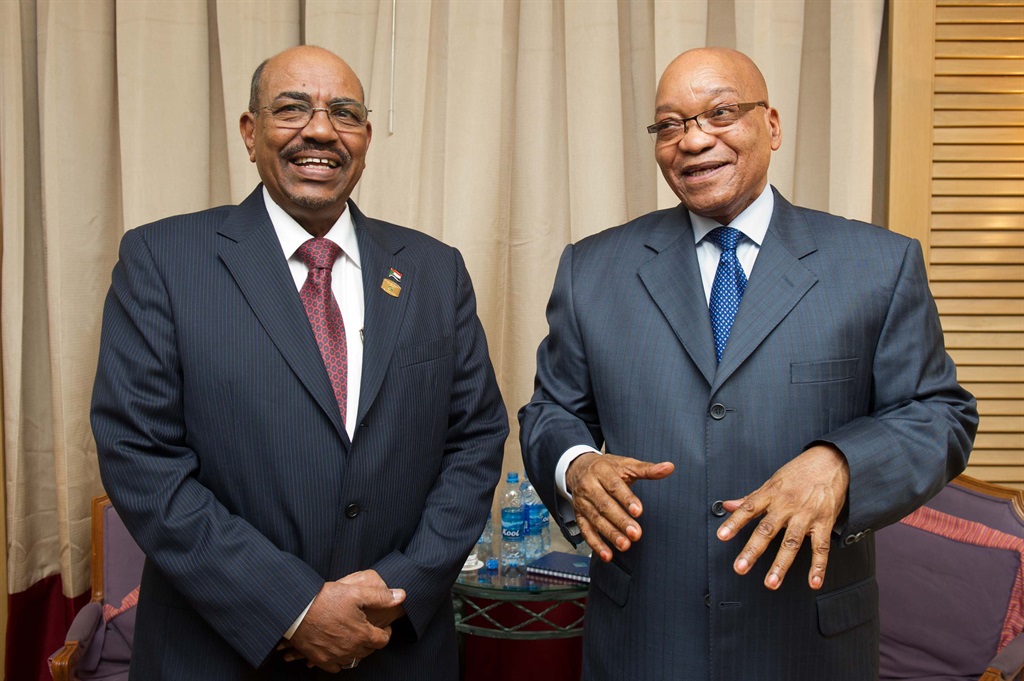
Justice Minister Michael Masutha’s spokesperson has confirmed that he will appear before the International Criminal Court next month as a result of the government’s failure to arrest Sudanese president Omar al-Bashir in 2015, but it was “to assist the chamber to understand the country’s position in what is procedurally an inquisitorial process”, not as an accused.
Bashir visited South Africa in June 2015 to attend the African Union summit in Sandton, Johannesburg.
A warrant of arrest was issued against Bashir by the ICC in 2009 and again in 2010. He is to answer to charges of genocide, war crimes and crimes against humanity.
Bashir flew out of South Africa hours before the North Gauteng High Court issued an order for his arrest.
“On April 7 the government, led by Minister Michael Masutha, will present its case on why it could not execute the warrant of arrest,” department of justice spokesperson Mthunzi Mhaga told City Press last night.
South Africa is a signatory of the Rome Statute, which established the ICC but has been using two articles of the statute to justify its failure to arrest Bashir.
In a statement issued in October 2015, Clayson Monyela, spokesperson for the department of international relations and cooperation, explained that “South Africa was faced with possible conflicting obligations with respect to the request for arrest and surrender from the court and the immunities that international law accords to serving heads of state and government, as acknowledged by article 98 of the Rome Statute, South Africa then approached the court with a view to consult with it in terms of article 97.”
Article 97 provides that where a state party to the Rome Statute receives a request for cooperation “to which it identifies problems which may impede or prevent the execution of the request, the requested state shall consult with the court in order to resolve the matter.”
Last night, Mhaga confirmed that “we will also seek to clarify the position with regards to article 97 and 98”.
Meanwhile, the South African government has revoked its intent to withdraw from the Rome Statute.
A senior government official confirmed to News24 that a letter to the United Nations dated March 7 was sent by the South African government citing the North Gauteng High Court in Pretoria judgment from February 22, in the case between the Democratic Alliance and the executive, as its reason for the reversal.
The high court ruled against government’s notice of withdrawal after finding it procedurally invalid and unconstitutional.
The notice to withdraw has been met with criticism from many quarters, including the International Commission of Jurists, who sent a brief to the Portfolio Committee on Justice and Correctional Services yesterday, opposing the country’s attempt to withdraw from the Rome Statute.
The brief was signed by retired South African Constitutional Court justices including Zak Yacoob and Kate O’ Reagan.
“South Africa should actively encourage other African states to put in place legislation required to empower domestic courts with the ability to try genocide, war crimes and crimes against humanity. South Africa should continue to work constructively with civil society on the advancement of international criminal justice,” the report stated.
Meanwhile, Mhaga said, the “pre-trial chamber has directed that the country appear before it to make oral submissions on its failure to arrest Bashir.
“It is important to note that South Africa will not be appearing as an accused before the pre-trial chamber but to assist the chamber to understand the country’s position in what is procedurally an inquisitorial process. South Africa will fully participate in this process.”




 Publications
Publications
 Partners
Partners








